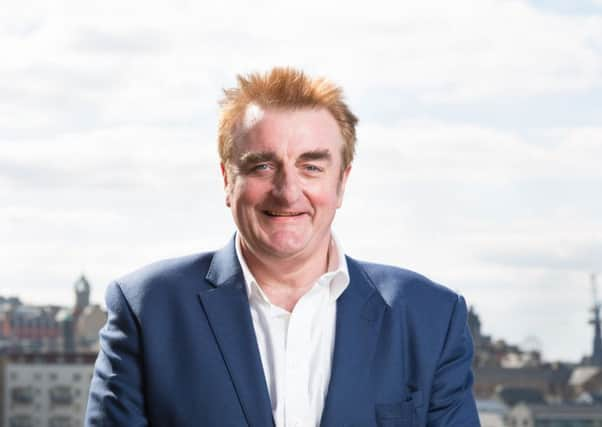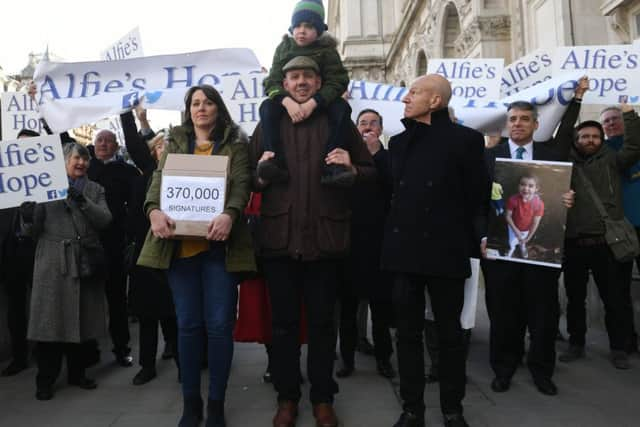Tommy Sheppard: Three compelling reasons why law on drugs must change


We need to change the law on drugs. In fairness, that’s always been my view. But until now I’ve done little about it as an MP. Why? Partly because there’s always been something I’ve felt was a greater priority – and partly because I know well how views can be distorted and used against people in public life.
But that changes now. Three different events over the past few weeks have made me realise that I and others need to make this a priority.
Advertisement
Hide AdAdvertisement
Hide AdFirst, I attended a meeting in parliament organised by the family of six-year-old Alfie Dingley. Alfie suffers from a rare form of epilepsy which can see him have a fit up to 250 times in a month. His parents exhausted every medical and pharmaceutical option. Nothing worked. Then they tried cannabis and moved to Holland where it is legally available. It worked. Alfie’s fits almost disappeared, and they began to believe a normal life might be possible.


Alfie’s family have had to return to England where this medicine is illegal. A campaign is underway urging the Home Secretary to issue a special license to allow Alfie to be treated with cannabis. It has a great deal of support across the political spectrum; I hope there will be a positive announcement soon.
But this isn’t just about one boy. Thousands suffer from painful illnesses which could be treated with cannabis. The cannabis plant has over 100 chemical derivatives but two are at the centre of the debate. THC is the stuff that gets you “high” – it induces feelings of euphoria and encourages sleep and appetite. It is a godsend to people with chronic pain, arthritis or fibromyalgia. The other main compound is CBD, a non-psychoactive substance with known therapeutic effects.
For centuries cannabis has been used effectively to treat many conditions. And in most of America and in 12 EU states, this is allowed. But here relieving pain with cannabis makes you a criminal. All the more ridiculous when you consider that morphine (related to heroin) is widely used in our hospitals. It’s time to change the law.


Advertisement
Hide AdAdvertisement
Hide AdI also recently went to the launch of an excellent new study produced by the all-party group on drug reform. This headline stood out for me: while class A drug (mis)use has been stable over the last decade, the number of deaths has doubled. The report concludes that the main reason is that the “war on drugs” has driven supply and use further underground. Organisations providing advice and counselling have been berated for encouraging consumption. Without information people make
mistakes. It was harrowing to hear Anne-Marie from the Anyone’s Child campaign tell how she lost her teenage daughter to an ecstasy overdose that needn’t have happened if she’d been told what a normal dose was.
The third event was a Parliamentary debate on drug consumption rooms led by my colleagues Alison Thewliss and Ronnie Cowan. Here the argument is that as part of its responsibility for treatment of drug misuse, the Scottish NHS should have the ability to test what known addicts are taking and provide them with a safe clean place to take it. This removes it from the streets, making it safer for users, reducing anti-social inconvenience for residents and keeping the authorities updated on what’s being sold. The problem? For the brief period an NHS employee has the drugs for testing, they could be jailed for possession.
Most laws governing drugs are reserved to Westminster. And for years public policy has amounted to a collective sticking of fingers in ears and shouting “la-la- la” at anyone presenting evidence for reform.
Advertisement
Hide AdAdvertisement
Hide AdToo many people are dying to let this continue. We need to move drugs out of the hands of criminal gangs and into a legally enforceable licencing regime. And in the short-term we need to focus on harm reduction, making sure anyone intending to take drugs knows what’s in it and where to get help.
Over coming months I’ll be consulting with police, health and voluntary bodies to look at how the law should change. I’d like to hear from you too. Please email me your views and your experiences – [email protected].
